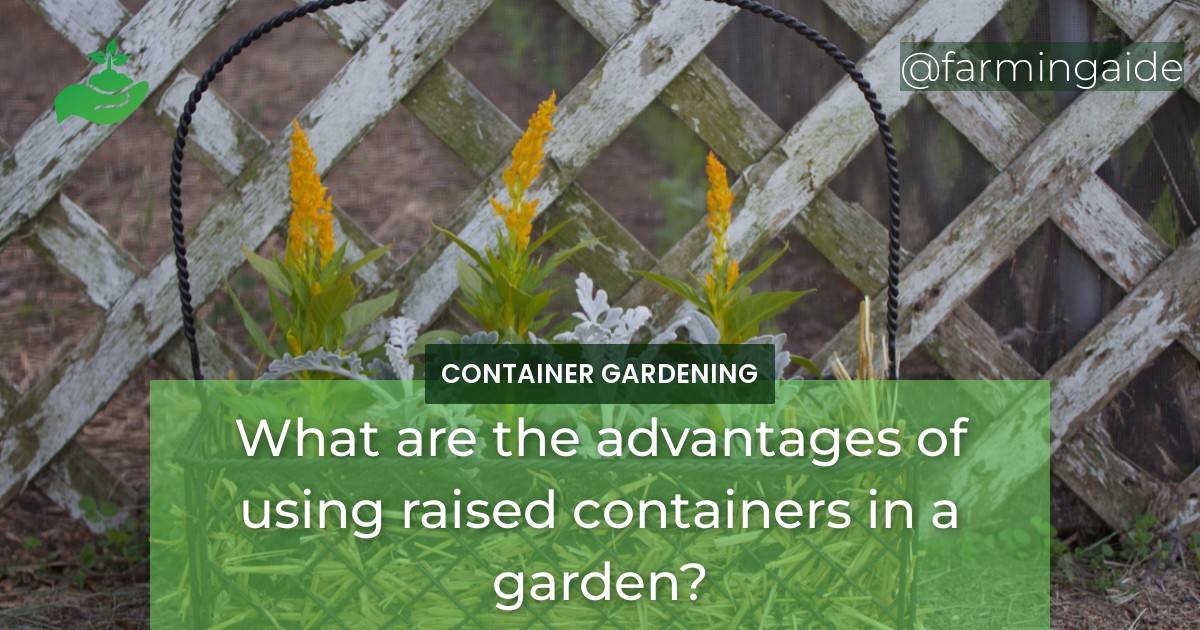Container gardening has become a popular way to grow plants and vegetables, especially for those who have limited outdoor space. Raised containers, in particular, have gained popularity over the years due to their many advantages. In this article, we will explore the benefits of using raised containers in a garden and why they are a great choice for container gardening.
Introduction to Raised Containers
Raised containers are simply garden containers that are elevated off the ground. They can be made from various materials, including wood, metal, plastic, or stone. The height of the container can vary, but it is usually about waist height. This makes it easier for gardeners to tend to their plants without putting too much strain on their backs.
Raised containers are becoming popular for several reasons:
- They are an excellent solution for those who have poor soil quality
- They provide better drainage and water retention
- They can be used in areas with limited space or poor soil quality
- They are easier to maintain than traditional gardens
Compared to traditional gardens, raised containers have several advantages that make them stand out.
Benefits of Raised Containers in Gardening
1. Better Soil Control
Good soil quality is essential for plant growth. With raised containers, gardeners have better control over the soil quality since they can choose the type of soil they want to use. This is not the case with traditional gardens where gardeners have to work with the existing soil, which may not be suitable for the plants they want to grow. Raised containers can also prevent soil compaction, which can impede plant growth.
The risks of poor soil quality, such as stunted growth and disease, are mitigated with raised containers. Gardeners can add fertilizers and other organic matter to the soil to improve its quality.
2. Improved Drainage and Water Retention
Proper drainage and water retention are crucial for plant growth. With raised containers, gardeners can ensure that the plants receive adequate water without the risk of waterlogging, which can cause root rot and other plant diseases. Raised containers also prevent the soil from drying out too quickly, which is a common problem with traditional gardens.
With better drainage and water retention, plants grown in raised containers are healthier, which can lead to better yields.
3. Pest and Weed Control
Weeds and pests can be a significant problem for gardeners. Raised containers can help prevent weeds from entering the garden since gardeners have better control over the soil. Gardeners can also take preventative measures such as adding mulch or weed barriers to keep weeds at bay.
With raised containers, pests are deterred since they have difficulty accessing the plants. This reduces the need for harmful pesticides that can be detrimental to the environment and human health.
4. Accessibility and Convenience
Raised containers make gardening more accessible to people with disabilities since they do not require bending or kneeling. They are also more convenient since gardeners do not have to work on the ground, which can be uncomfortable. Raised containers are also ideal for urban gardeners since they can be placed on balconies, patios, or rooftops.
ALSO READ
Types of Raised Containers
Raised containers come in various types and materials, each with its pros and cons. Some common types of raised containers include:
- Wooden planters
- Metal troughs
- Plastic containers
- Stone planters
The type of raised container you choose will depend on your needs and preferences. Wooden planters are a popular choice since they are affordable and easy to customize. Metal troughs are ideal for those who want a sleek and modern look. Plastic containers are lightweight and easy to move, making them a great choice for those who want portability. Stone planters are durable and long-lasting, but they can be expensive.
How can raised containers in a garden be adapted for different seasons in container gardening?
Raised containers in a garden can easily be adapted for different seasons in container gardening. By using the right plants and adjusting watering and sunlight, seasonal container gardening adapting can be achieved effortlessly. In the summer, you can plant heat-loving vegetables and in the fall, switch to cool-weather crops.
Conclusion
Raised containers offer several advantages that make them an excellent choice for container gardening. They provide better soil control, improved drainage and water retention, pest and weed control, and accessibility and convenience. With the different types of raised containers available, gardeners can choose the one that best fits their needs and preferences.
RELATED ARTICLES:


